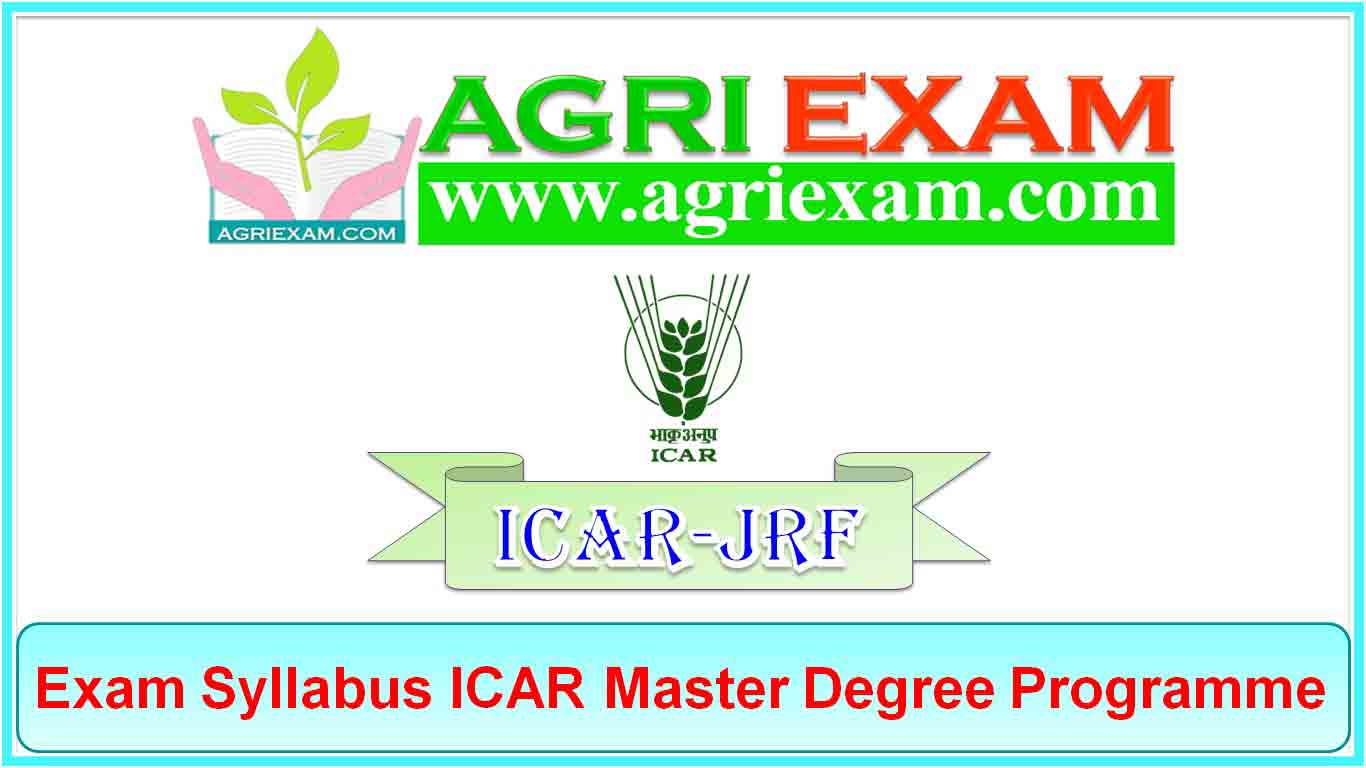MAJOR SUBJECT GROUP – FOOD SCIENCE TECHNOLOGY

ICAR JRF Syllabus FOOD SCIENCE TECHNOLOGY
Sub-Subject:
19.1: Food Technology/Food Science & Technology
19.2: Food Safety & Quality Assurance
19.3: Food Science & Nutrition
UNIT-I: General chemistry of food constituents, physical properties of foods, properties of cottoldal systems, gels and emulsions. Minerals in foods, physicochemical changes in foods during processing and storage, functions of food nutrients, dietary allowances and nutritional requirements. Metabolism of carbohydrates, lipids and protein. Biological value and PER. Food additives, contaminants and anti-nutritional factors. Food flavors and puff- flavors. National and international food standards, modern analytical techniques in food analysis.
UNIT-II: Engineering properties of food materials, System analysis, mass and energy balance, Principles operations and equipment for food materials flow handling, cleaning, de-husking, sorting and grading; peeling, size reduction, mixing and forming, bakery foods manufacture, extrusion, separation, filtration and membrane processes, expression, baking roasting, frying, extraction and leaching, crystallization, distillation, blanching, pasteurization, sterilization, evaporation, drying, freezing, packing, heat exchanging, dairy specific operations. Process equipment design, heat and mass transfer, equipment for steam generation, compressed air, refrigeration and air conditioning, water and waste water treatment, biochemical engineering and thermo bacteriology. Automation, on-line data acquisition and process control. Food plant layout and design. Energy audit.
UNIT–III: Preparation and manufacturing technology of cereals and bakery products, beef, pork, poultry, fish & sea foods and egg, sausages and table ready meats, dairy products, fresh fruits, fresh vegetables, processed fruits, processed vegetables, Post Harvest Handling and storage of Fruits and Vegetables. Sugars, sweets, fats and oils, fermented foods, alcoholic and non-alcoholic beverages, indigenous foods, fast, readymade and fashion foods. Dehydration and concentration methods, irradiation, microwave and solar processing of foods, food by-products & downstream processing, flavoring and pigment technology. Judging of food products, food plant management and legal aspects, food plant safety, risk and hazards. Effluent treatment and environment pollution, waste solids upgrading and treatment, food storage, functions of packaging, packaging operations, types of containers, FFS, hermetics closures, canning packaging materials and package testing, transportation and marketing food products.
UNIT –IV: Role of intrinsic and extrinsic properties of food in relation to microbial growth. Microbiology of fruits, fruit products, vegetables, soft drinks, bakery products, milk and milk products, milk, fish, egg and marine produces. Spoilage of foods, food pathogens and their toxins in relation to human health. Food preservation by sugar, salt, chemicals, heat, cold, irradiation, dehydration and packaging. Microbiology of fermented foods and beverages and factors affecting their quality. Methods for microbiological examination of foods, food hygiene and safety regulations. Water quality and waste disposal in food industry.
ICAR JRF Syllabus FOOD SCIENCE TECHNOLOGY
Is this syllabus is for phd purpose? Or for PG/UG admission??
This syllabus is for PG entrance exam
Ug
Can you suggest the books for entrance exam preparation